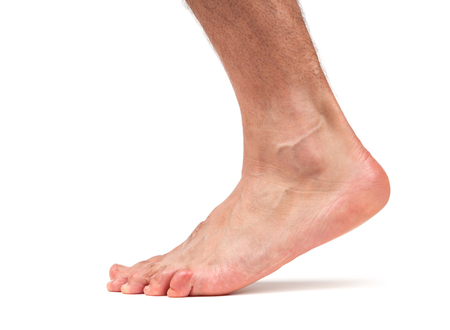Stay Safe: Learn More About Deep Vein Thrombosis
Your podiatrist doesn’t encounter dangerous conditions every day, but when we see a Deep Vein Thrombosis (DVT), we stop everything and act quickly as, without prompt medical intervention, DVT can easily progress into a life-threatening situation.
A DVT is a blood clot that forms in a vein deep in the body, usually in the lower legs. That is because the blood clot, which usually forms in the deep veins of a calf or thigh, can partially or completely block blood flow back to the heart.
If the clot in dislodges, it can travel throughout the body. A free-floating DVT can block blood flow to the heart and cause damage to the one-way valves in the veins. Approximately 15% of DVT’s settle in the lungs, causing Pulmonary Embolism (PE), which have a mortality rate of 1 in 4. It is essential that you become familiar with the symptoms of DVT and that, if you suspect that one has developed, you seek medical attention immediately.
Some people are at higher risk of DVT than others. Many factors can be reduced or eliminated with lifestyle changes. How many of the following apply to you?
● Are you a smoker?
● Do you spend periods sitting at home or at work?
● Are you overweight, obese, or unfit?
● Have blood tests shown you to have high cholesterol levels?
● Do you have a history of heart failure?
● Are you over 65?
● Do you have varicose veins?
● Do you take oral contraceptives?
Although occasionally asymptomatic, most people with a deep vein thrombosis notice pain, swelling, tenderness, and a warm feeling in their in their leg. Sometimes swollen veins are visible as well. The pain and soreness is usually worse with standing or walking, and feels better with rest and elevation.
Deep vein thrombosis can be lethal. If you notice symptoms that are consistent with DVT, you should call your podiatrist right away. If s/he is unavailable, go to the nearest urgent care center or emergency room.
Dr. James M. McKee is experienced at treating DVT and all other issues related to the health and wellbeing of your feet, ankles, and lower legs. Call Podiatry Group of Annapolis, P.A. at 410-224-4448 or click here to schedule a convenient visit in our comfortable office on Solomons Island Road. Dr. McKee will conduct a thorough examination culminating in a careful and accurate diagnosis, then work with you to create an effective and individualized plan for treatment and follow up care.

